As our fractured planet stumbles toward the end of the second decade of its new millennium it’s become de rigueur among a certain class of the super rich to create contingency plans for possible doomsday scenarios that will bring about the end of the world.
In a long, fascinating, meandering interview at South by Southwest in Austin yesterday, Elon Musk — the serial entrepreneur behind some of the world’s most audacious new companies — revealed himself to be the billionaire who actually has done the most to prepare for the coming catastrophes that could end humanity.
Unlike other billionaires (some of whom Musk counts as investors), Musk isn’t trying to build a fortress to defend against the world’s problems or wait until the end of the world, he’s built his companies to solve the problems that could bring about the end of the world — or create a hedge for humanity in the event of an apocalypse.
Those expressed goals (or rhetorical strategy) make it hard to talk about the challenges Musk’s many businesses face or contradict certain assumptions around them.
But it’s undeniable that from climate change (with Tesla’s emphasis on reducing the use of fossil fuels); to malevolent artificial super-intelligences (with Neuralink); and the threat of global war wreaking havoc (the Mars escape plan à la SpaceX), Musk is readying a large chunk of humanity for a coming cataclysm — and trying to avert it.
For Musk, the sacrifices — a divorce, a near bankruptcy, the risk of losing everything — were all steps along the path toward building a better future against the shadows of the horrors that loom.
When asked what a future would look like for his children, it’s one where all of his visions for humanity’s collapse are averted by the successful intervention of his own businesses.
Or, at least that is Musk’s sales pitch to the world.
“A good future would look like… we really substantially transferred to sustainable generation and consumption of electricity,” Musk said. “For us to have a base on the Moon, a base on Mars and to be exploring other parts of the solar system… And that there’s a benign AI and we’re able to achieve symbiosis with that AI.”
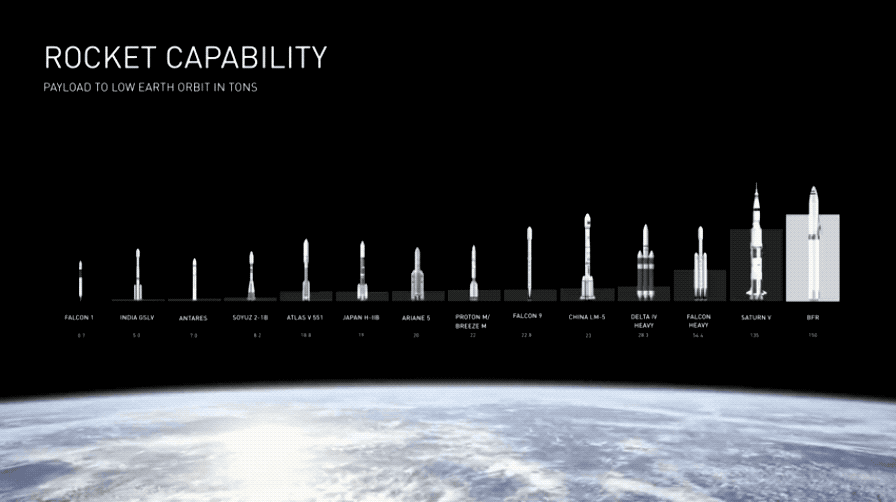
The Mars Bar
Inspiring a new generation of astral entrepreneurs and reinvigorating the moribund domestic space industry in the U.S. is cause enough for celebration — even without putting it in the context of a hedge against a new dark ages of human society brought about by World War III.
“I think it’s unlikely that we won’t have another world war again… there probably will be at some point,” Musk said in his interview with Jonathan Nolan, the creator of the CBS television drama “Person of Interest” and co-creator of HBO’s hit drama “Westworld”. Referencing the Isaac Asimov science fiction series Foundation, Musk placed SpaceX in the context of how humanity survives its own catastrophe.
“[So] there’s likely to be another Dark Ages,” Musk said. “Particularly if there’s a third world war… [And] we want to make sure that there’s enough of a seed of human civilization somewhere else so that we can bring civilization back and shorten the length of the dark ages.”
That’s the purported motivating strategy behind SpaceX and Musk’s martian missions (at least to hear him tell it in that interview). Although, with a twinkle, the SpaceX founder also referenced the “space hotels” of 2001.
Indeed, if Musk sees Mars as a hedge, he also sees it as an unrivaled entrepreneurial opportunity. “Mars will need everything from iron foundries to pizza joints… and Mars should have great bars,” Musk said to Nolan. “Once that [infrastructure] has been built and there is a means of getting cargo to and from Mars and to and from the Moon… that’s really where there’s a huge amount of entrepreneurial resources that are needed.”
But Musk warns that it won’t be easy for the first few folks attempting to create life on Mars. ”
“The Moon and Mars are often thought of as some escape hatch for rich people, but it won’t be that at all,” he said. “Really it kind of reads like Shackleton’s ad for Antarctic explorers… difficult, dangerous, good chance you’ll die, excitement for those who would survive.”
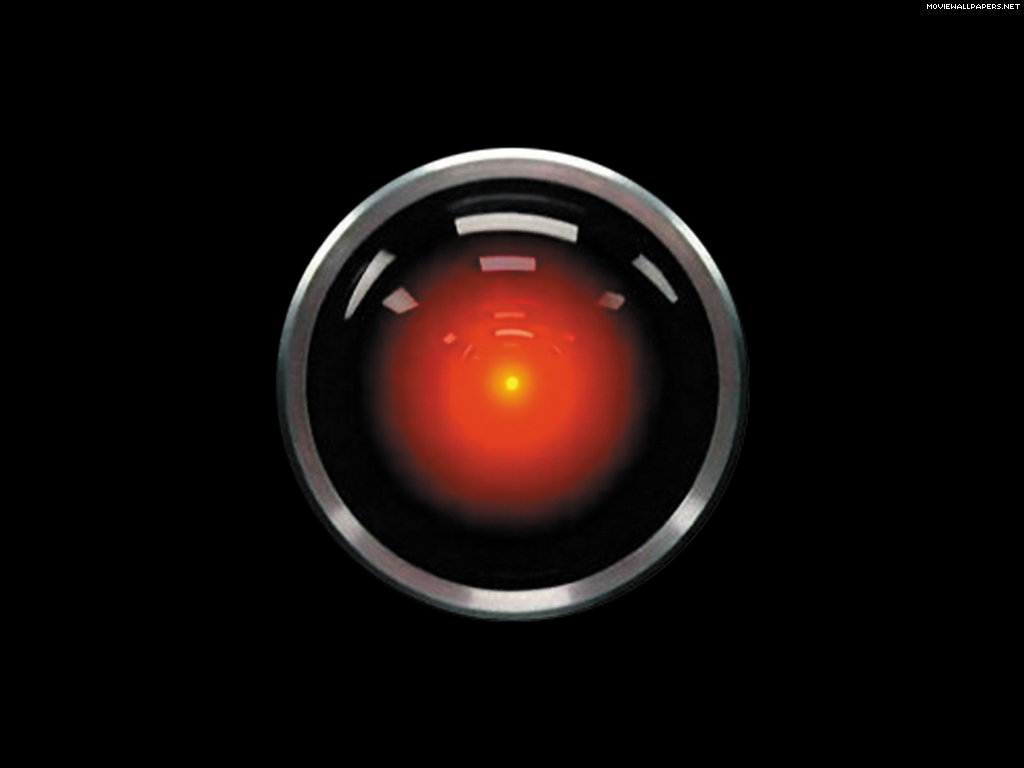
Fools! Famous last words!
The twin drives of humanity’s cataclysmic end and entrepreneurial potential also motivate Musk’s work with Neuralink, which is pegged to his fears of an all-consuming artificial super-intelligence.
“Narrow AI is not a species level risk. It will result in dislocation… lost jobs… better weaponry and that sort of thing. It is not a fundamental, species-level risk, but digital super-intelligence is,” Musk told the audience in Austin.
It’s not the first time that Musk has beaten the drum for more regulation. Calling out, like Cassandra, the threat that he sees from artificial intelligence. It’s kind of the second most popular subject on his Twitter (behind the Boring Company).
“This is a case where you have a very serious danger to the public and you have to make sure that everyone is developing Ai safely. The danger of AI is much greater than the danger of nuclear warheads,” Musk said.
Neuralink, to Musk, represents a solution to the problem, by creating a symbiotic technology that connects humans and artificial intelligences. “We do want a close coupling between collective human intelligence and digital intelligence,” he said. “Neuralink is trying to help in that regard by creating a high bandwidth interface between AI and the human brain.”
And as for the experts in the field who dismiss Musk’s fears and downplay the potential threat that artificial intelligence poses for humanity. Musk fears they’ll end up like his inspiration, Kanye West, when West rapped: “I sold my soul to the devil it was a crappy deal/at least it came with a few toys like a happy meal.”
“The biggest issue I have with AI experts… is that they think they’re smarter than they are. This tends to plague smart people,” says Musk. “They’re defining themselves by their intelligence… and they don’t like the idea that a machine could be smarter than them, so they discount the idea. And that’s fundamentally flawed.”
The evidence for Musk is in the dramatic improvements artificial intelligence has made over the past few years. It’s apparent in the autonomous driving systems onboard Musk’s own Teslas, and in the leaps and bounds Alphabet’s AlphaGo and AlphaZero have made in their understanding of gameplay.
Still, AlphaGo is only playing board games and Musk’s own autonomous systems have had fatal problems with their operations in the past, so perhaps the problem is not as dire as he may fear.
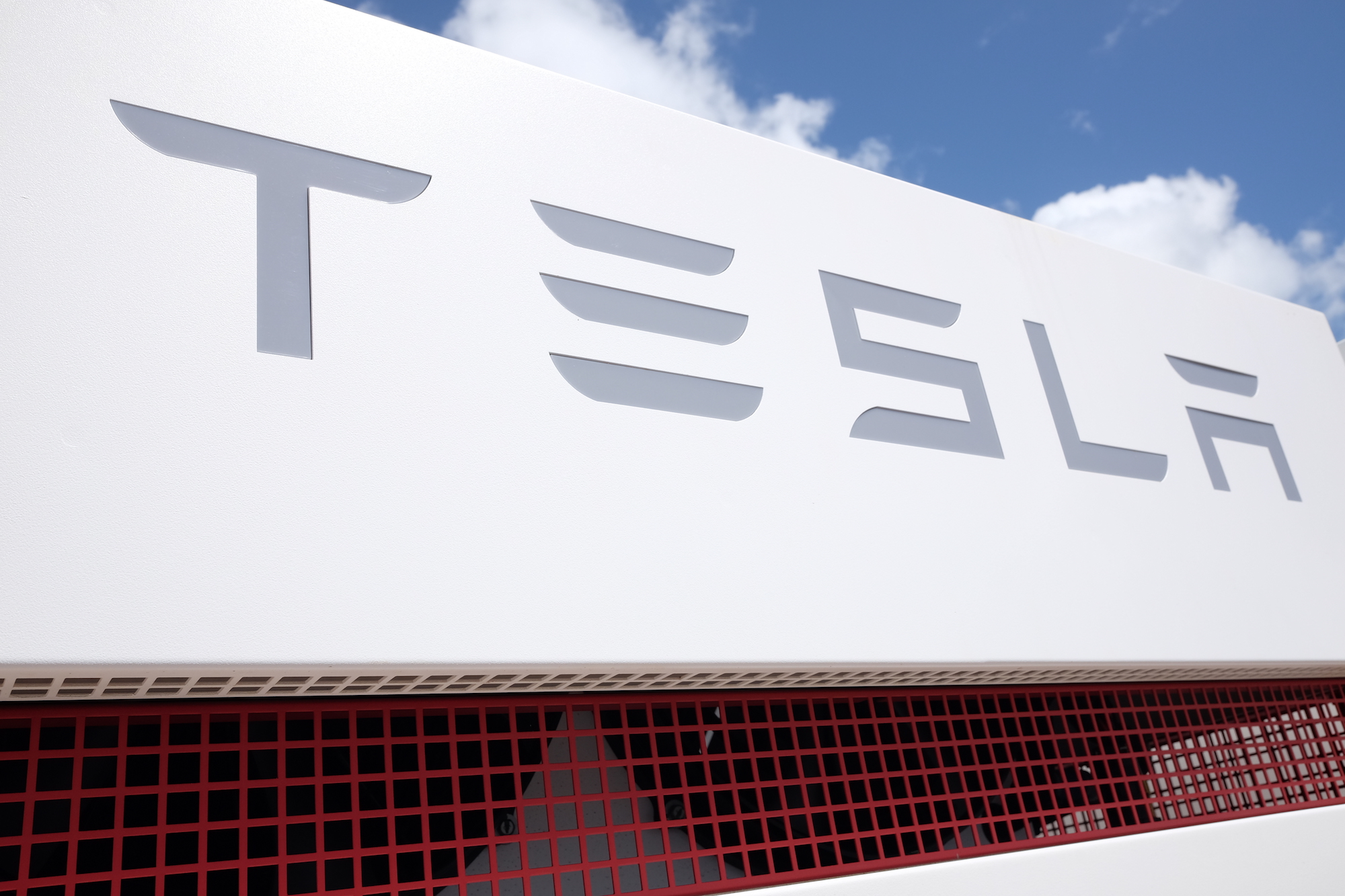
There has to be a price to carbon
The final threat that Musk is preparing for is climate change. Since his earliest days in college, Musk has been fascinated by electric vehicles. He spent time in school working on ultra-capacitors that could be used in electric vehicles before forsaking a doctoral degree to pursue a career in the brave new world offered online.
Still, the challenge of electric vehicles beckoned. And after making his millions with PayPal, Musk returned to electric vehicles and set up Tesla. The company was launched with an eye toward replacing fossil fueled vehicles on roads — and eventually SolarCity was brought into the fold with its thesis around making it easier to install renewable energy generating technologies for homes and businesses.
“Anything that pushes carbon into the atmosphere… has to have a price,” Musk said in Austin. It’s a practical statement that echoes the advice from thousands of scientists around the world. And for Musk it’s a defense against rising sea levels that could put much of coastal California (and Florida) underwater.
“In the absence of a price, we sort of pretend that digging up trillions of tons of fossil fuels and putting in the atmosphere… won’t have a bad outcome,” he said. “It’s up to people and [their] governments to put a price on carbon.”
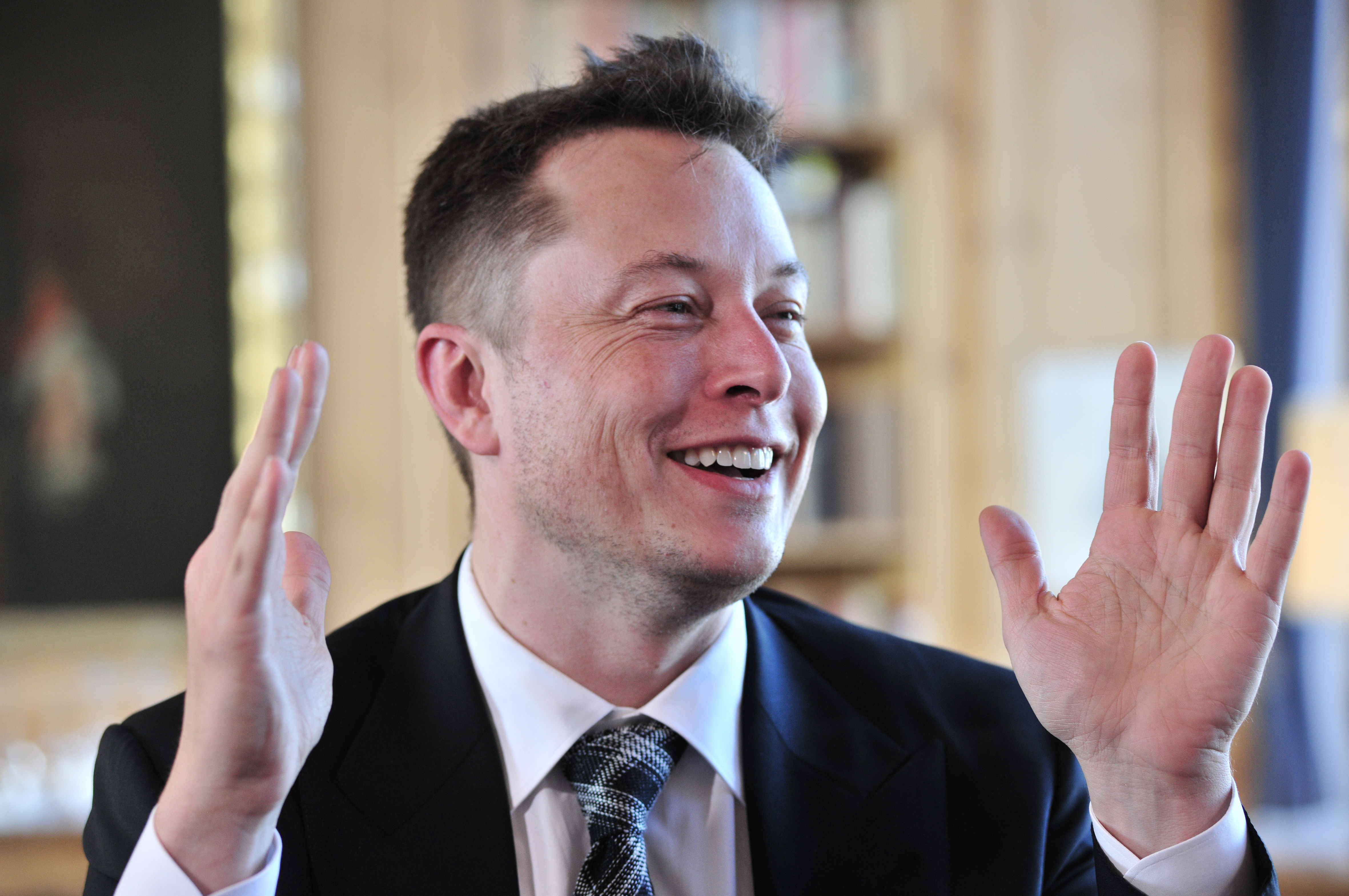
Scar tissue
As lofty — and singular — as the preservation of humankind is as a goal for an entrepreneur, Musk has faced a number of very terrestrial challenges along the way. In 2008, both SpaceX and Tesla were in extreme jeopardy of going bankrupt and Musk himself faced the possibility of going broke.
He had spent $90 million of his personal fortune to get both companies up and running and that year, both had run aground. SpaceX was recovering from its third unsuccessful launch and Tesla was on the verge of bankruptcy.
As Musk told the crowd in Austin, the financing for Tesla closed at 6 in the evening on Christmas Eve. Creditors were circling and if the round hadn’t closed that night, his electric vehicle company would have had to declare bankruptcy two days after Christmas.
“I ended up putting all the money in,” Musk said — repeating the beats of his biography for a rapt and silent audience. “SpaceX is alive by the skin of its teeth. So is Tesla.”
Here’s a link to the full video provided by SXSW.
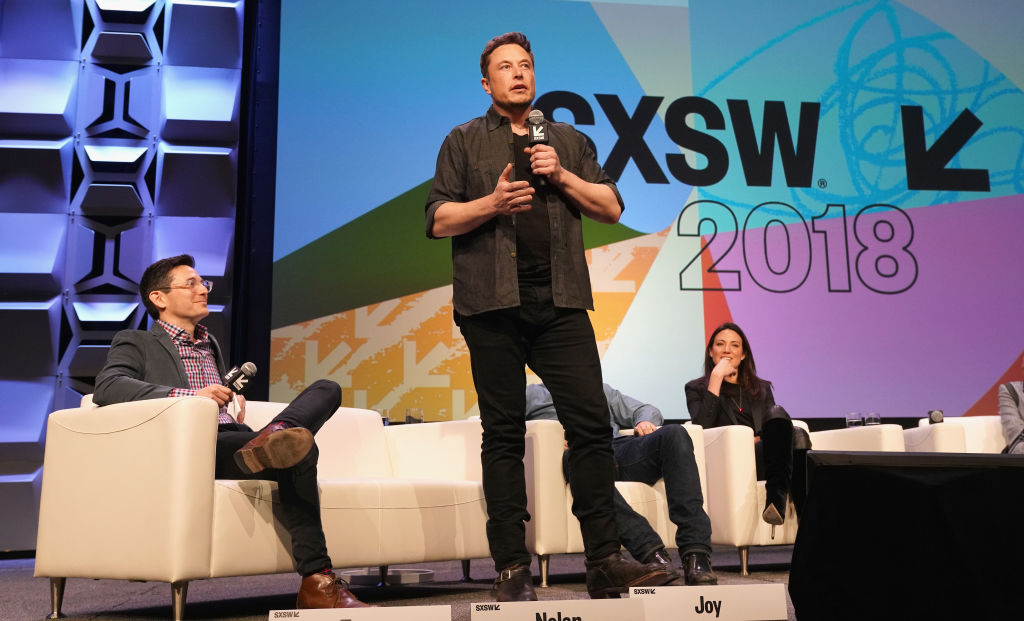






























Comment